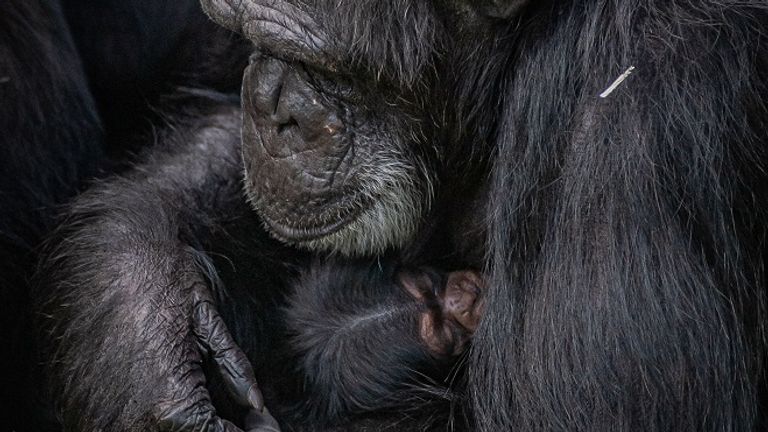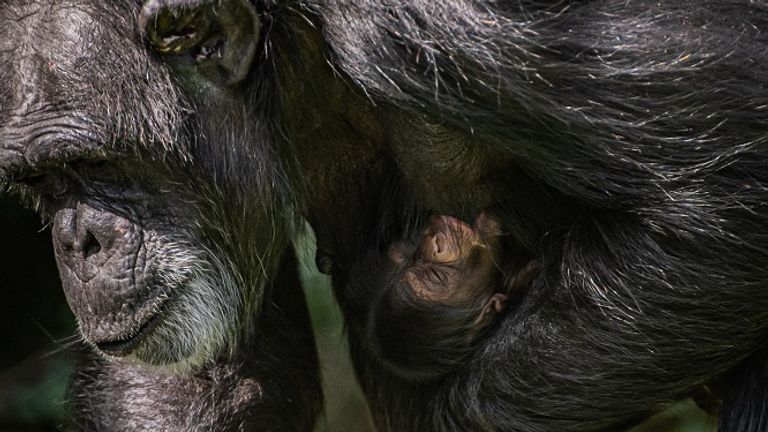Birth of endangered western chimpanzee at Chester Zoo ‘hugely significant’
Zookeepers have expressed their pride and excitement after a critically endangered Western chimpanzee was born in the UK in a “hugely significant” move for the species.
The baby’s mother, 43-year-old Mandy, safely gave birth overnight on Friday after an eight-and-a-half-month pregnancy.
Primate experts at Chester Zoo have not yet established the new arrival’s gender but mother and child appear to have already bonded well.
In the wild, the Western chimpanzee is under huge threat from hunting, the illegal bush meat trade and extensive habitat loss – all due to human activity, say experts.
As few as 18,000 Western chimpanzees are thought to remain in Africa and it is the first subspecies of chimpanzee to be added to the list of critically endangered apes.
The Western chimpanzee is found in West Africa, including in Senegal and Ghana, but is already believed to be extinct in Benin, Burkina Faso and Togo.
Andy Lenihan, team manager of the primates section at Chester Zoo, said: “Mandy is a wonderful mum. She’s bonded instantly with her new baby and can be seen protectively cradling it in her left arm at all times.
“It’s a little too soon to tell if her new arrival is male or female as a newborn chimpanzee will remain in the arms of mum for several months until they develop the confidence to start exploring independently.
“Most importantly though, it’s bright eyed, alert and getting stronger by the day.
“A new arrival always creates a lot of excitement – it’s a real extended-family affair as many of the females in the group often want to help to take care of the newcomer while, for some of the juveniles, seeing a mum with a new baby is a completely new experience.”
Mike Jordan, animal and plant director at the zoo, said: “We’re incredibly proud to see a precious new baby in the group – it’s a hugely significant addition and a big boost for this species.
“The chimpanzees here at Chester are a key part of the international efforts working to ensure there’s a viable safety-net population of these critically endangered animals.”
Source: Read Full Article




